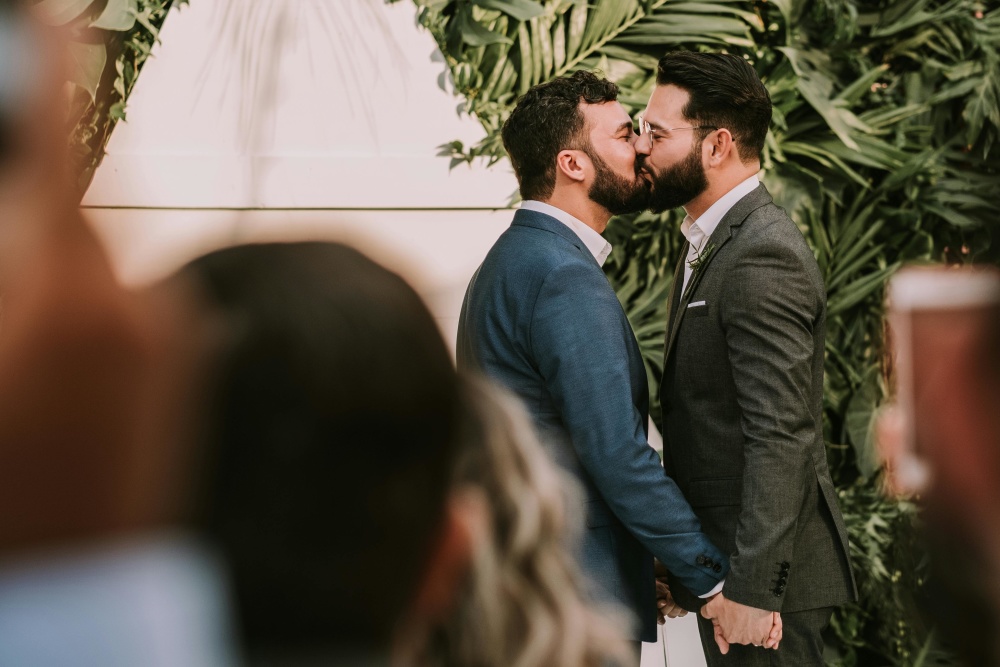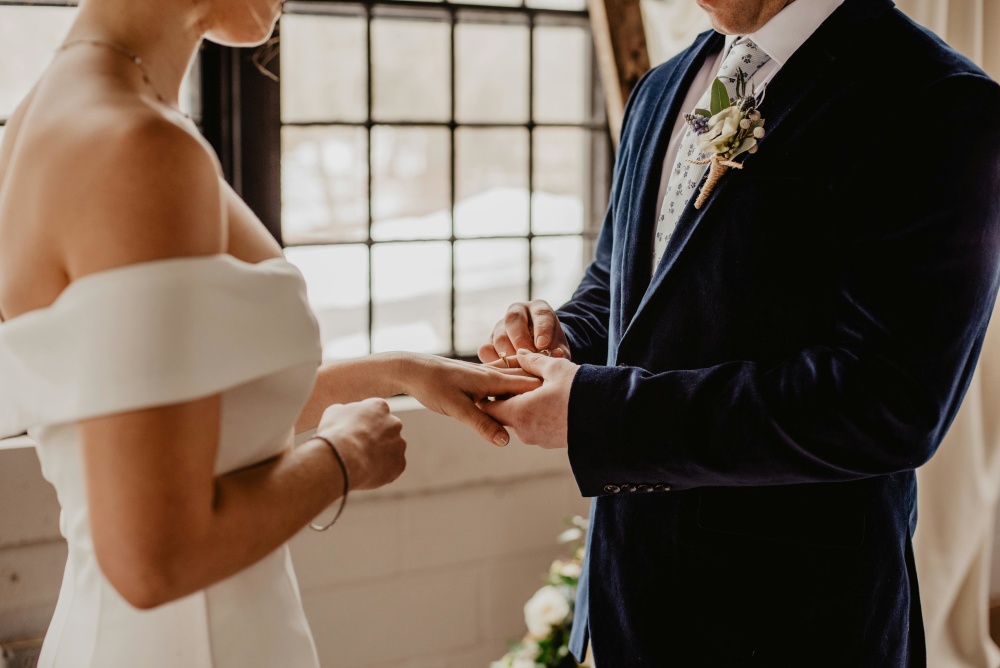Updated August 28, 2025
Getting Married In Japan: All You Need To Know
So, you want to get married in Japan — congratulations!
Now that you’ve found the one, you probably have questions. What’s required to tie the knot in Japan? How does the process actually work? Well, I’m here to help. In this post, I’ll tell you all about getting married in Japan, including the whole procedure and the documents you’ll need.
I’ll also talk about the cost of marriage here, and share some foreigner-specific tips to help with the marriage process in Japan.
So, if you want to learn how to get married in Japan, read on.
In this article: 📝
Marriage In Japan For Foreigners: Who Can Get Married?
In Japan, both foreigners and Japanese citizens are allowed to marry as long as both parties are 18 years old or older, and the marriage is permissible by both Japanese law and the law of the marrying person’s country of origin. Here are the restrictions set forth by the Japanee Civil Code.
For one, a marriage between close relatives isn’t permitted. This includes parents and children, brothers and sisters, and grandparents and grandchildren.
Another restriction has to do with remarrying, and it only applies to women. According to Japan’s Civil Code, women aren’t allowed to remarry during the 100 days after getting divorced.
This may sound strange and, admittedly, a little outdated, but it’s done due to paternity concerns. The idea is to prevent mix-ups regarding paternity that can happen due to an already pregnant woman marrying someone else immediately after divorce.
However, there’s an exception here: as the rule borderline infringes on human rights, the Japanese Civil Code was updated in 2016, allowing women to marry immediately after divorce by submitting a doctor’s letter proving they’re not pregnant at the time of divorce.
The same revision to the law was also responsible for reducing the waiting period from a whopping 6 months to the 100-day rule that’s enforced today.
Unfortunately, one final restriction regarding marriage in Japan has to do with the gender of the marrying parties.
About The Legality of Same-Sex Marriage In Japan
Sadly, as of yet, the Japanese Civil Code doesn’t recognize marriage among same-sex partners. This means that two men or two women can’t be legally “married” in Japan.
However, there’s a partnership system that’s supposed to be similar to marriage and provide couples with some benefits, but this is only available in certain cities and prefectures.
This partnership is called a partnership oath system, partnership certification system, or 同性パートナーシップ制度 (dōsei pātonāshippu seido). However, this is in no way a legally binding certification.
Essentially, this partnership allows couples to have visitation rights with each other in hospitals or prove their partnership for housing matters.
However, institutions aren’t obligated to accept the certificate as this is more of an honorary system that relies on the goodwill of the person/institution to which the certificate is submitted.
At the time of writing this article in September 2025, 33 prefectures and 538 cities in Japan have the said partnership system in place. While a truly equal same-sex marriage isn’t possible yet in Japan, there’s still hope.
According to reports from March 14, 2024, the Sapporo High Court became the third Japanese high court to rule that the ban on same-sex marriage is unconstitutional, which is a big, promising step towards equality.
To put things into perspective, over the years, a total of seven rulings were made about same-sex marriages in Japan’s high courts, three of which, including the recent Sapporo High Court verdict, ruled the state of the law flat-out unconstitutional.
That said, these aren’t the only high courts that seem to be in favor of marriage equality. Three of the other rulings also stated that the lack of legal recognition is in a “state of unconstitutionality,” which is still a positive ruling in the name of human rights.
So far, only one of the seven verdicts has openly ruled that the current state of the law is constitutional.

Getting Married In Japan: The Required Documents
Having learned the who and the what, it’s now time to learn how to get married in Japan, which, for the most part, is about preparing the required documents.
So, here are all of the documents you need to prepare to get married in Japan, explained.
Kon-In Todoke (婚姻届): Marriage Registration Form
The first document you need to get married in Japan is the marriage registration form, called “kon-in todoke (婚姻届).”
This is a form you can obtain from all city offices as well as online through the official website of your local government. The date you fill out and submit this form will be your official date of marriage, so keep this in mind.
Normally, you can fill out this document on the spot the day you get married. However, since there’s a requirement for two witnesses to sign the document, some people fill it out in advance with the signatures of their witnesses, while others bring their witnesses along and fill out the form on the spot.
Kon In Yōken Gubi Shōmei Sho (婚姻要件具備証明書: Certificate of No Impediment
Certificate of No Impediment, or kon in yōken gubi shōmei sho (婚姻要件具備証明書), is a document that’s only required from foreigners getting married in Japan. So, if one or two parties are from outside of Japan, they need a document that proves there’s no impediment to their getting married and that they are competent.
This document can be obtained from your country’s embassy or consulate and can cost around 5,500 JPY, but please refer to your country’s embassy for the exact amount, as this is just an approximation.
A Valid Proof of Identification
This may be a no-brainer, but you need to present a valid form of identification in order to get married. This is to prove that you’re indeed who you say you are, and it can be any form of ID that’s considered a legal identification document.
For instance, you can present your passport or government ID, but also identification documents issued by the Japanese government, like your My Number Card or residence card.
Birth Certificate
This is a requirement for foreign nationals only, so Japanese citizens aren’t required to submit it.
Keep in mind, however, that some municipalities do not accept copies and may need the original document to officiate your wedding.
What’s more, since you’re a foreigner and your birth certificate was issued in a foreign language, you also need to submit a Japanese translation.
While a Japanese translation is a requirement for all non-Japanese documents you’ll be submitting, it doesn’t have to be an official one. So, all you need is the complete translation of the document, which you can even have done by a friend.
Koseki Tōhon (戸籍謄本): Proof of Family Registration
Finally, the last document you’re required to submit is the Koseki Tōhon (戸籍謄本), which is Proof of Family Registration. However, this is only required from Japanese citizens.
This document is for Japanese residents who are getting married in a municipality different from the one they are originally registered in. So, if your fiance is Japanese, you may need to submit this document – which should be issued within three months before the registration – depending on your specific case.
While the documents I shared so far are a requirement everywhere in Japan, some additional documents may be required depending on the municipality in which you’re getting married. So, checking with your city office beforehand is the way to go here.

How To Get Married In Japan: The Process, Explained
As I mentioned, getting married in Japan is essentially submitting your marriage registration form. The date you submit it is your official date of marriage. So, the first thing to do is to obtain it and fill it out.
Remember to fill out the whole form in Japanese only and have your witnesses sign it as well.
Now, add all of the required documents to your filled-out registration form. Many people overlook the translations, so make sure to include a translation for all documents that aren’t in Japanese.
Then, with your documents prepared, go to your local city office and simply apply. Once your application is processed and approved, you’ll be considered legally married in Japan. So, if you’re having a big wedding on a special date, make sure to prepare your documents in advance so that you can get married on the same day or around the same time.
Getting The Marriage Certificate
Once you’re officially married, you’ll receive a certificate proving that your legal union is registered.
This document is called a “Certificate of Acceptance of Notification of Marriage” (婚姻届受理証明書), or kekkon-todoke juri shōmeisho, and includes the basic information like your names, your marriage date, and nationalities.
However, there’s also a secondary document that proves your marriage, which includes much more information regarding you and your partner.
This document, called the “Certification of Information Recorded on Marriage Registration” (結婚届記載事項証明書), or kekkon-todoke kisai jiko shōmeisho, isn’t issued automatically but upon request, and may be required where your regular marriage certificate may not be sufficient.
Essentially, this certificate includes all of the documents you’ve submitted to have your marriage registered and may be required on occasion. That said, as long as you have either one of these certificates and aren’t explicitly asked for the latter one, you’ll be fine.
Fees and Costs Associated With The Registration of A Marriage In Japan
While getting married sounds like it has to be expensive, it’s only costly if you’re having a wedding. At least, this is the case in Japan. The whole “registration of your marriage” part is, after all, the important part, and this only requires paying a few fees.
Indeed, the actual costs attached to getting married or having your marriage registered are only as follows:
Issuance fee for Certificate of Acceptance of Notification of Marriage (marriage certificate): 350 JPY for the standard and 1,400 JPY for the decorated version
Issuance fee for the Certificate of No Impediment (for foreigners): Around 5,500 JPY
Translation fee for non-Japanese documents (if there are any): Between 10,000 JPY-12,000 JPY
Marriage and Visa
Before I get to the FAQs, let’s get one thing clear: getting married in Japan does not grant you the right of permanent residency or citizenship, nor does getting married to a Japanese citizen.
Getting permanent residency and, later down the line, Japanese citizenship, are separate processes you’ll need to go through after getting married. The general rule is that you can get a permanent residency if you marry a citizen or a permanent resident, have resided in Japan for at least a year, and have been married for at least three years.
The exact process and how long it’ll take depends on your specific circumstances, so check with the immigration office to learn the requirements and what you need to do.
To learn more about visa types and permanent residency, you can also check out my guide on getting permanent residency in Japan or my post on getting a Japanese visa as an engineer.

Frequently Asked Questions About Getting Married In Japan
Now that we’ve covered everything about the marriage procedures in Japan, it’s time to answer some FAQs about getting married in Japan, which I’ll take as an opportunity to summarize what I’ve covered so far.
Does Japan Issue Marriage Certificates?
Yes, Japan does issue marriage certificates. In fact, the government issues two types of certificates: the Certificate of Acceptance of Notification of Marriage, or 婚姻届受理証明書 (kekkon-todoke juri shōmeisho), and the Certification of Information Recorded on Marriage Registration, or 結婚届記載事項証明書 (kekkon-todoke kisai jiko shōmeisho).
The former document is issued when you register your marriage to the municipality and includes the basic information regarding your marriage. The latter, on the other hand, is only issued upon request and includes all documents you’ve submitted to apply for marriage.
Does Japan Allow Same-Sex Marriages?
Unfortunately, Japan’s legal system doesn’t recognize same-sex marriage as of now, nor are there any laws drafted to be passed in the future.
That said, certain local governments do issue a partnership that may be an “alternative”, which is a same-sex partnership system called 同性パートナーシップ制度 (dōsei pātonāshippu seido). However, this partnership doesn’t make the parties legally “married”, but does offer some of the benefits that come with marriage.
Can Foreigners Get Legally Married In Japan?
Yes, foreigners can get married in Japan even if neither party is a Japanese citizen. However, there are some extra steps you’ll need to take, such as obtaining the affidavit of competency to marry or Certificate of No Impediment (婚姻要件具備証明書 = kon in yōken gubi shōmei sho), which you can obtain from your embassy.
How Do I Register My Marriage In Japan, and What Documents Do I Need?
You can register your marriage in Japan by submitting the following documents to your local city office:
Your Valid IDs
Marriage Registration Form (signed by both parties and witnesses)
Certificate of No Impediment (for the foreigner party/parties only)
Your Birth Certificates
Proof of Family Registration (for the Japanese party/parties only)
What Are The Typical Costs Involved In a Japanese Wedding Ceremony?
You'll face only three potential fees when getting your marriage registered. These are:
Marriage Certificate Issuance Fee: 350 JPY to 1,400 JPY
Certificate of No Impediment issuance fee: Approx. 1,500 JPY
Document Translation Fees: Between 10,000-12,000 JPY
How Does Marriage Affect My Visa or Residency Status In Japan?
Getting married in Japan doesn’t grant you the right of residency or citizenship, and even marrying a Japanese citizen won’t automatically grant you these rights. However, you can apply for permanent residency after three years of being married to a Japanese citizen or permanent resident if you’ve lived in Japan for longer than a year.
If you want to learn more about permanent residency via marriage, head over to my guide to getting permanent residency in Japan, where I explain the relevant rules and regulations.
While this is all for getting married in Japan, if you’re still looking for the one, why not check out my detailed guide on dating in Japan? You’ll learn all about the Japanese dating culture and how to meet people here. If you’re an introvert, we’ve got you covered as well, because I also have another post introducing the most popular dating apps in Japan.
Get Job Alerts
Sign up for our newsletter to get hand-picked tech jobs in Japan – straight to your inbox.









